29 Of The Most Powerful Pieces Of Writing By Women In 2016

There were moments during 2016 where it was easy to wonder whether women were valued at all in this country. When a serial sexual predator can become the president of the United States, do women’s voices and stories even matter? But even in those darkest moments, we could count on those voices and stories to pull us all through.
Moving into the next year, lifting up quality journalism ― specifically quality journalism written by women and members of other marginalized groups ― will be all the more vital.
To that end, for the fifth year in a row, we’ve curated a list of pieces that made an impact on us as readers over the last calendar year. To make the list, an article had to be (1) published in 2016, (2) written by a woman and (3) be available online.
Below are 29 pieces of writing (though by no means is this an exhaustive list) to put on your reading list ASAP. They will make you think, laugh, cry ― alternately break your heart and put it back together again. Remember: Words still matter, perhaps now more than ever.
* * *
Hillary Clinton’s Nomination Is A Victory For The Smart Girls
Jill Filipovic, Cosmopolitan
No, Hillary Clinton did not become our first woman president. No, she did not shatter that “highest, hardest glass ceiling.” But she sure as hell got closer than any woman before her did. And this alone, as Jill Filipovic argued in July, is a victory ― not just for women as a whole, but especially for a particular breed of ambitious, smart girls who have long been told those qualities which are virtues in men make them “unlikable.” “There was Hillary on stage,” writes Filipovic, describing Clinton’s speech at the DNC. “A go-getter, a hard worker, not immediately likable, uncool, but still, just maybe, the future president. A girl-nerd turned lady boss. One of us.”
* * *
Sara Benincasa, Medium
When an anonymous man wrote to author and comedian Sara Benincasa to ask why she had gained weight, she decided to answer him honestly. Her response will have you cheering the entire way through. Sometimes women gain weight ― and don’t care! ― while they’re busy kicking ass. As Benincasa writes: “Anyway, during The Fattening, nobody who hired me or who wanted to hire me ever said that I was too fat. Do you think they were just being polite? I should ask. I will go through my union or one of my agents. I have several. I also have a manager. I should ask her. I could ask my lawyer, my CPA, my personal wealth manager, or the very handsome man who cleans my home in Los Angeles. He’s really nice even though he probably looks in my fridge and goes, ‘Oh my God, this kale is fattening!’”
* * *
Roxane Gay, Marie Claire
Following the deaths of Alton Sterling, Philando Castile and five police officers this summer, our country was broken and grieving as the black community and allies tried to make sense of injustices that feel unfixable. In an essay for Marie Claire, Roxane Gay writes about how ally-ship alone will not solve any problems. “Black people do not need allies. We need people to stand up and take on the problems borne of oppression as their own, without remove or distance. We need people to do this even if they cannot fully understand what it’s like to be oppressed for their race or ethnicity, gender, sexuality, ability, class, religion, or other marker of identity. We need people to use common sense to figure out how to participate in social justice.”
* * *
Rebecca Traister, New York Magazine
After nearly 20 years of being treated like a punchline, Marcia Clark’s story got a feminist re-examination thanks to Ryan Murphy’s “The People vs. O.J.” The miniseries shed light on the misogyny that dominated much of the coverage of Clark when she was prosecuting O.J. Simpson. She was called hysterical; the press and judge criticized her hairstyles and outfits; a tabloid published topless photos sold by an ex. Two decades later, these incidents read as so obviously disgusting that they require a reckoning. Clark deserves to (finally) have a voice, to tell her story on her own terms. So why reexamine Clark’s treatment now? As Traister surmises: “It’s not as if the swift judgments of social media have banished sexist bullshit from the land. In fact, I suspect that it’s an unconscious awareness of our contemporary hang-ups that prompts us to chew on the past.” Indeed.
* * *
Chimamanda Ngozi Adichie, Gloria Steinem, Rashida Jones, Jon Meacham, T Magazine
In a gorgeous cover story for T Magazine, four authors (including one man, who we’re breaking our own rules for here a little bit) wrote thank you notes to Michelle Obama, “a woman,” they write, “who has spent the past eight years quietly and confidently changing the course of American history.” Each author has a personalized take as they outline FLOTUS’ impact on them and on society. As Gloria Steinem writes, “We will never have a democracy until we have democratic families and a society without the invented categories of both race and gender. Michelle Obama may have changed history in the most powerful way — by example.”
* * *
Jessica Knoll, Lenny
The main character in Jessica Knoll’s hit novel Luckiest Girl Alive holds a secret: as a teenager, she was the victim of a gang rape. In a gut-wrenching essay for Lenny in March, Knoll revealed that the inspiration for her character’s storyline had in fact come directly from her own life. “I’m not fine. It’s not fine,” she writes. “But it’s finally the truth, it’s what I know, and that’s a start.”
* * *
The Night That Obama And Hillary Created ISIS
Liz Meriwether, New York Magazine
After Donald Trump proclaimed that Obama literally founded ISIS with the help of Hillary Clinton, Liz Meriwether imagines what that first conversation between the two of them must have been like in an (obviously) fictional piece for New York Magazine. Months after Obama thought of the idea for ISIS at Coachella, Meriwether writes, he decided to tell Clinton of his plans over popsicles. “Hillary was breathing hard. She walked the length of the kitchen, then walked the width of the kitchen, and then surprised herself by doing the first tumbling pass in Aly Raisman’s floor routine. Obama knew it was dangerous to tell someone his secrets, but it was such a relief.”
* * *
Catherine Pearson, The Huffington Post
On the political stage, abortion is often disconnected from the women who get them. Some politicians don’t consider the many, many reasons women might seek abortions when they’re pushing legislation that would block access. To situate these laws within the complex, and often heartbreaking human stories of the women they impact, Catherine Pearson interviewed four women who got abortions for very different reasons under very different circumstances.
* * *
Solange Knowles, Saint Heron
Solange Knowles beautifully breaks down the insidious message at the core of subtle racism: “I do not feel you belong here.” Framing this larger point within a single incident at a Kraftwerk concert, Knowles explains that as a black woman with a black family living in a white supremacist society, simply asserting the right to take up space and express joy can be a radical act. “We belong. We belong. We belong,” she writes. “We built this.”
* * *
Here Is The Powerful Letter The Stanford Victim Read Aloud To Her Attacker
Emily Doe, to BuzzFeed’s Katie J.M. Baker
In June, BuzzFeed published a letter that a victim of sexual assault, referred to as Emily Doe, read to her attacker, Brock Turner ― now a household name ― in court. Her statement spread rapidly across the internet, igniting a national conversation about campus assault, rape culture and victim-blaming. The letter gives a voice to so many silenced victims, culminating in a powerful proclamation: “Finally, to girls everywhere, I am with you. On nights when you feel alone, I am with you. When people doubt you or dismiss you, I am with you.”
* * *
In Secretive Marijuana Industry, Whispers Of Abuse And Trafficking
Shoshana Walter, Reveal
Shoshana Walter does a deep dive into the sexual abuse that occurs in the marijuana industry, which has largely remained under the radar. “The forests also hide secrets, among them young women with stories of sexual abuse and exploitation,” writes Walter. This one’s a long read, but well worth the time.
* * *
Play The Woman Card And Reap The Rewards
Alexandra Petri, The Washington Post
“Frankly, if Hillary Clinton were a man, I don’t think she’d get 5 percent of the vote. The only thing she’s got going is the woman’s card,” Donald Trump said during the primaries. In a brilliant funny-because-it’s-true piece for the Washington Post, Alexandra Petri lays out all of the benefits that come with a so-called “woman’s card.” For example: “Present the Woman Card to a man you have just met at a party and it is good for one detailed, patronizing explanation of the subject you literally got your PhD in.” Sigh.
* * *
I Cannot Take Nate Parker Rape Allegations Lightly
Gabrielle Union, LA Times
Actress Gabrielle union begins her brave LA Times op-ed by describing her violent rape two decades earlier. She writes about how her own experience led her to accept a role in Nate Parker’s “Birth of a Nation” and how the news of the rape allegations against him shook her to her core. She writes: “Since Nate Parker’s story was revealed to me, I have found myself in a state of stomach-churning confusion. I took this role because I related to the experience. I also wanted to give a voice to my character, who remains silent throughout the film. In her silence, she represents countless black women who have been and continue to be violated. Women without a voice, without power. Women in general. But black women in particular. I knew I could walk out of our movie and speak to the audience about what it feels like to be a survivor.”
* * *
Why Snapchat Is Hell For The Brokenhearted
Alana Levinson, Fusion
Any woman who has gone through a breakup in the age of social media will understand exactly the type of pain that Alana Levinson so eloquently pinpoints in this essay. “When you lose someone completely, there’s a kind of sick comfort in still knowing some things about their life, even if it hurts like hell,” she writes. “So we often don’t unfriend or unfollow, choosing instead to keep the lifeline open, just in case.” Having a digital window into a lover’s life builds intimacy when the relationship is happening, but once it ends, our phones become emotional landmines.
* * *
Andi Zeisler, New York Times
Before women across the country decided to take back the word “nasty,” Andi Zeisler called on us to take back “bitch.” Could a term that plagued “unlikable” Hillary Clinton for years be turned into a cheeky, powerful badge of honor? As Zeisler writes: “The power of ‘bitch’ to shame is, with a perspective adjustment, also its power to shine. All that’s required to reframe the word is to point out that the things bitches are often guilty of can be both unexceptional and necessary: flexing influence, standing up for their beliefs, not acting according to feminine norms and expectations.”
* * *
To All The Straight Women Who Love Gay Men: Your Safe Space Is No Longer Their Safe Space
Melissa Harris-Perry, Elle
In the wake of the Orlando massacre, Melissa Harris-Perry examined the way straight women take the safety of gay male spaces for granted ― something gay men themselves can never fully do. “Straight girls love gay male public spaces because they feel like safe spaces,” she writes. “The Orlando massacre reminds us this safety is an illusion of our relative privilege. Not even gay public space is safe space to be gay.” And if straight women bask in the gorgeous glow of these queer spaces, they should also be the loudest allies to the queer community, using their privilege to fight homophobia and the effects of toxic masculinity. As Harris-Perry points out, “gay public space cannot be my safe space until all public space is safe for those who are gay.”
* * *
Women Know Why Donald Trump’s Accusers Stayed Silent For So Long
Rachel Sklar, The Washington Post
When women come forward with allegations of sexual assault, harassment or abuse against a powerful man, especially if time has passed since the violating incidents, the question asked is always the same: Why didn’t she speak up sooner? As Rachel Sklar explains, the answer is quite simple. Women who experience sexual harassment, assault or abuse ― which is most women ― often have a choice: “Should I stand up for myself and risk everything, or let an awkward moment fade into the past? For many women, the answer is to set our jaw and move forward, and say to ourselves: We have worked hard to get where we are. It is not fair what you did to us, but it is even less fair to let you stop us.”
* * *
When They Go Low, Can I Still Say Like One Bitchy Thing?
Reductress
During her speech at the Democratic National Convention, Michelle Obama told the crowd, “When they go low, we go high” ― a now famous quote that reminds us all to always be the bigger person. But, over on Reductress (a satire site that has been killing it all year), writer Gwynna Forgham-Thrift offered a more realistic take. “Can’t I just squeeze in like, one sick burn before I walk away? Just one?” she asks. “Does brunch count? I can still say what’s on my mind at brunch, right? Michelle Obama can’t possibly be nice for an entire brunch???”
* * *
Giving Up Alcohol Opened Up My Eyes To The Infuriating Truth About Why Women Drink
Kristi Coulter, Quartz
You don’t have to agree with every part of Kristi Coulter’s assessment of why women drink to find it important food for thought. As she writes: “Even cool chicks are still women. And there’s no easy way to be a woman, because, as you may have noticed, there’s no acceptable way to be a woman. And if there’s no acceptable way to be the thing you are, then maybe you drink a little. Or a lot.” Worth considering when you see all the wine o’clock memes dominating Instagram.
* * *
Not Just Words: Why Donald Trump’s Lewd Talk Matters
Lisa Belkin, Yahoo News
Following the release of that hot mic audio heard round the world in which Donald Trump explained how he likes to “grab ‘em by the pussy,” our now President-elect brushed off the convo as “just words.” In a piece for Yahoo News, Lisa Belkin explained precisely how important it is to understand that words mean things. She wrote, “Linguistic history is the measure of why we change our words and what the evolution reflects about a society… Words are never merely words. They are always a reflection of where a culture stands. And of what we as a society are willing to think, say and hear.”
* * *
Why Lemonade Is For Black Women
Dominique Matti, Medium
Many women and men were moved by Beyonce’s stunning visual album “Lemonade,” but there is no confusion about who this work of art is by and for: black women. Dominique Matti’s gorgeous piece speaks to this truth. It’s hard to find just one passage to highlight, but this one near the end of her essay quite nicely sums it up: “’Lemonade’ is for Black women because the world treats Black women as though they are difficult daughters, difficult mothers, difficult lovers, difficult friends, difficult workers, difficult strangers. They treat us like we are difficult, because it makes us easy targets. They treat us like we are difficult so that no one in the world will defend us. But now we are defending ourselves. ‘Lemonade’ was an act of self-defense.”
* * *
Melissa Jeltsen, The Huffington Post
In the U.S., more women are killed by their intimate partners than by any other group. Melissa Jeltsen puts faces to the grim statistics surrounding domestic violence in her harrowing multi-media project, “This Is Not A Love Story.” And these statistics also hold a very important lesson. As she writes: “In the cases we examined, we found evidence that a large portion of the women killed had previously been abused by their partners. In many instances, there were signals that circumstances might turn deadly.”
* * *
Emily Nussbaum, The New Yorker
An early ‘90s episode of the sitcom “A Different World” re-imagined the 1992 presidential election if the Clintons’ genders and races were switched ― a black woman named Jill Blinton ran for president while her black male partner Hilliard is senselessly attacked by the press for having opinions. Nussbaum explains how this episode and the race/gender reversal serves as “a reminder of the many ways in which our interpretation of history can shift, as we change and the world changes.”
* * *
“The Arrangements”: A Work Of Fiction
Chimamanda Ngozi Adichie, New York Times Book Review
Chimamanda Ngozi Adichie gives us a glimpse into Melania Trump’s world in a fictional, yet very believable short story. In Adichie’s version of Trumpland, Donald copy and pastes his tweets into texts to show his wife, Ivanka secretly donates to Hillary Clinton and of course, Tiffany tattles on her for doing so.
* * *
Poor People Deserve To Taste Something Other Than Shame
Ijeoma Oluo, The Establishment
Through a beautiful mix of personal experience and analysis, Ijeoma Oluo breaks down exactly why the dominant narrative that often surrounds poor people is so problematic. From memes to headlines to tightened government support, Oluo outlines how “the fear of poor people squandering the charity of hard-working American tax dollars” ultimately serves to limit “the ways in which poor Americans are allowed to live.” When we shame those who are not wealthy for indulging in any bit of material happiness, we only diminish their humanity. As Oluo writes: “We deny them the opportunity to live like actual human beings worthy of dignity and respect. Everyone should be able to bring home a steak or a lobster, or a Boston cream pie, once in a while.”
* * *
Hillary Clinton Didn’t Shatter The Glass Ceiling. This Is What Broke Instead.
Rebecca Traister, New York Magazine
Gutted. Broken. Shattered. These are the words used by so many of Hillary Clinton’s supporters to describe what they felt in the aftermath of election night. Clinton’s campaign staff, supporters and the press tasked with covering her campaign sat under a glass ceiling at the Javits Center on November 8. The symbolism, meant to be poignant, turned out to be painful. But as Traister so beautifully articulates, in a piece that has a 90 percent chance of making the reader cry, this type of disappointment is par for the American course: “This is normal — America as it has always been, not yet the better version we hoped it could be. But the half of America that lost is devastated. ‘Crying as if someone died’ is a text message I received from more than one friend last week. And it is as if someone died: a dream of what we could have been, of the president we could have had.”
* * *
The Problem With Obama’s Faith In White America
Tressie McMillan Cottom, The Atlantic
If you have read Ta-Nehisi Coates’s powerful story “My President Was Black,” published in The Atlantic, you absolutely must read Cottom’s equally powerful response. Cottom reflects on the visceral reaction she had reading Coates’s piece: “I screamed a lot,” she writes. “When I was done reading and screaming, I cried.” Coates wrote much about Barack Obama’s inherent trust of white people, a quality that perhaps both allowed him to become our nation’s first black president, and prevented him from seeing that the defense of whiteness (and white supremacy) would be what allowed ― or perhaps made inevitable ― the rise of Donald Trump. Cottom’s writing gets to the core of Obama’s blindspot: “Those of us who know our whites know one thing above all else: whiteness defends itself. Against change, against progress, against hope, against black dignity, against black lives, against reason, against truth, against facts, against native claims, against its own laws and customs. Even after Donald Trump was elected, Obama told Coates that all is not lost. He is still hopeful about the soul of white America. He said nothing about the soul of black America. That is where my hope resides. It is where my faith has always resided.”
* * *
Jia Tolentino, The New Yorker
Early this year, writer Jia Tolentino began making a list of people who played themselves ― a term, she says, which “can be loosely defined as working against your conscious intentions.” On the night of the presidential election, she realized that she too had played herself ― as so many of us did ― in believing that Donald Trump was unelectable. “I had thought that, within my small life, I was credibly serving the future that I wanted: one in which we would have our first female President, one in which truth mattered, one in which Trump represented the death rattle of old prejudices rather than a vessel for those prejudices made hot-blooded and new. I allowed some sense of personal righteousness to satisfy me, and I suppose that’s the beginning of where I went wrong.” In 2016, we all played ourselves.
* * *
Masha Gessen, The New York Review Of Books
Two days after a painful, tumultuous, polarizing presidential election, Masha Gessen lays out how Americans can live under ― and resist ― a leader who has autocratic tendencies. It is an anxiety-ridden read if you are someone who fears what Donald Trump may do to this country once he takes office, but for that same reason it is an amazingly important one. Gessen’s rules are simple to understand and likely much more difficult to live by: Be outraged. Don’t make compromises. Remember the future. We plan to repeat that last one to ourselves over and over and over again.
To read last year's list...
28 Pieces From 2015 That Should Be Required Reading For Women
30 Of The Most Important Articles By People Of Color In 2016
Also on HuffPost
When Hillary Clinton won the Democratic nomination.
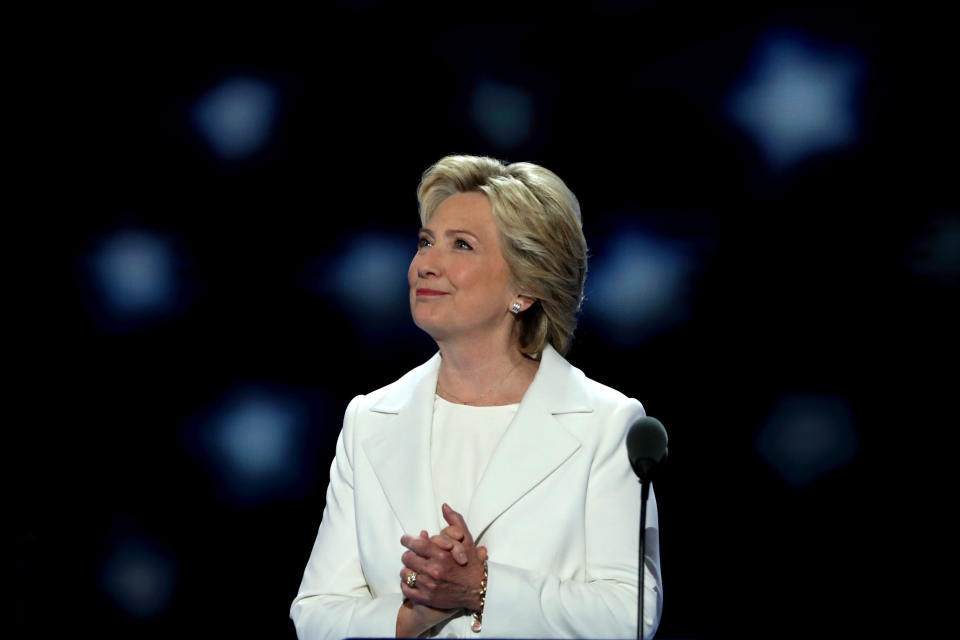
Clinton ultimately lost the electoral college, but she took the popular vote by more than 2 million votes -- another first for women -- and that margin continues to grow.
When the Supreme Court served a huge victory for abortion rights.
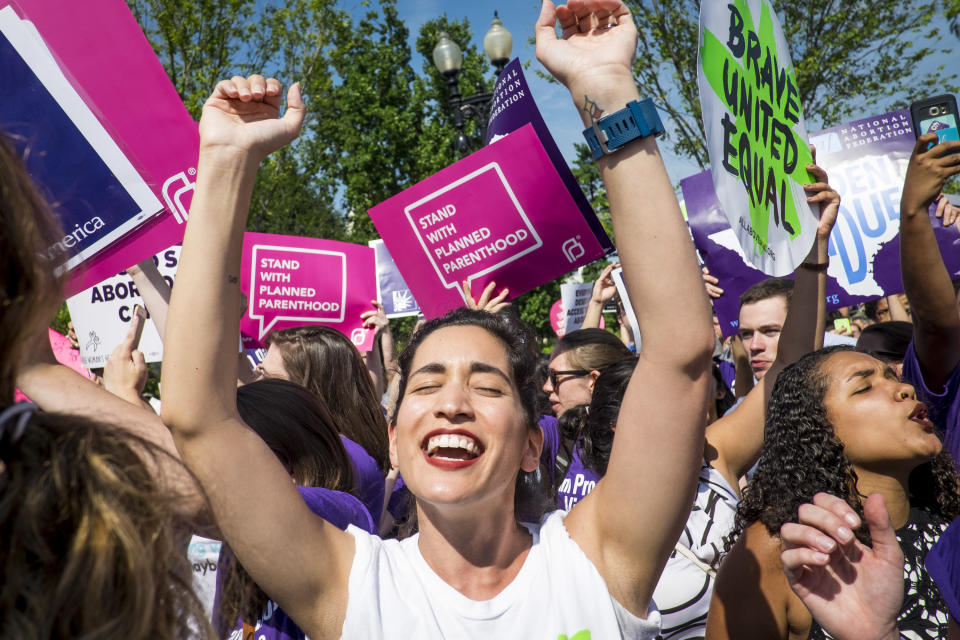
But in a 5-3 decision, the Court concluded the law placed an "undue burden" on women and their ability to access care. In doing so, they offered up the most significant legal victory for abortion rights in the United States in decades. The ruling establishes legal precedent that will make it that much harder for anti-choice legislators to chip away at women's reproductive rights (despite their constant efforts to do so).
When Simone Biles was complete and utter perfection.
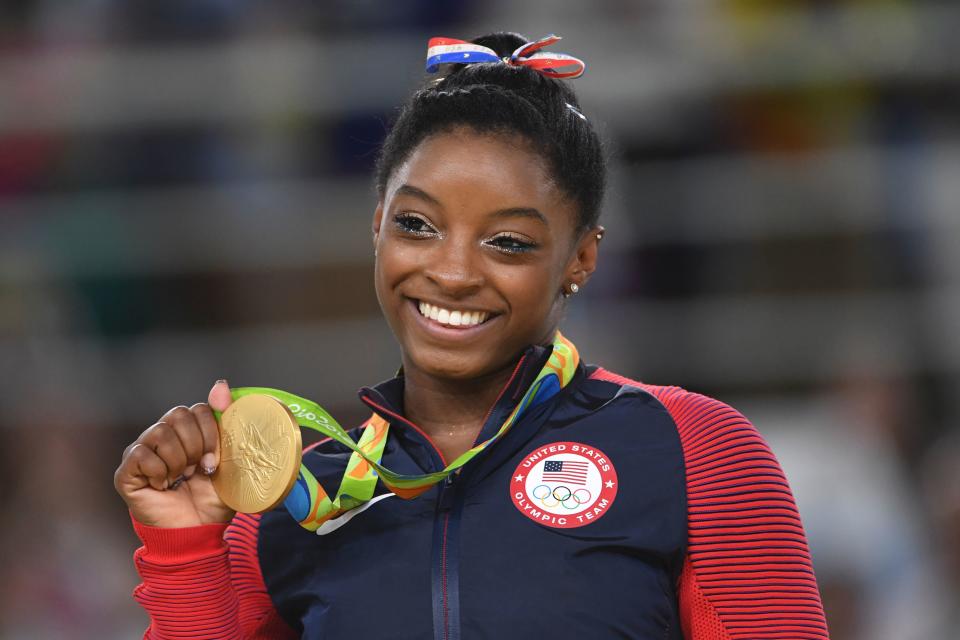
Biles also perfectly shut down any attempts to describe her remarkable achievements by likening her to male superstars. “I’m not the next Usain Bolt or Michael Phelps,” she told Sporting News. “I’m the first Simone Biles.”
When Simone Manuel became the first African-American woman to win an individual gold in swimming.
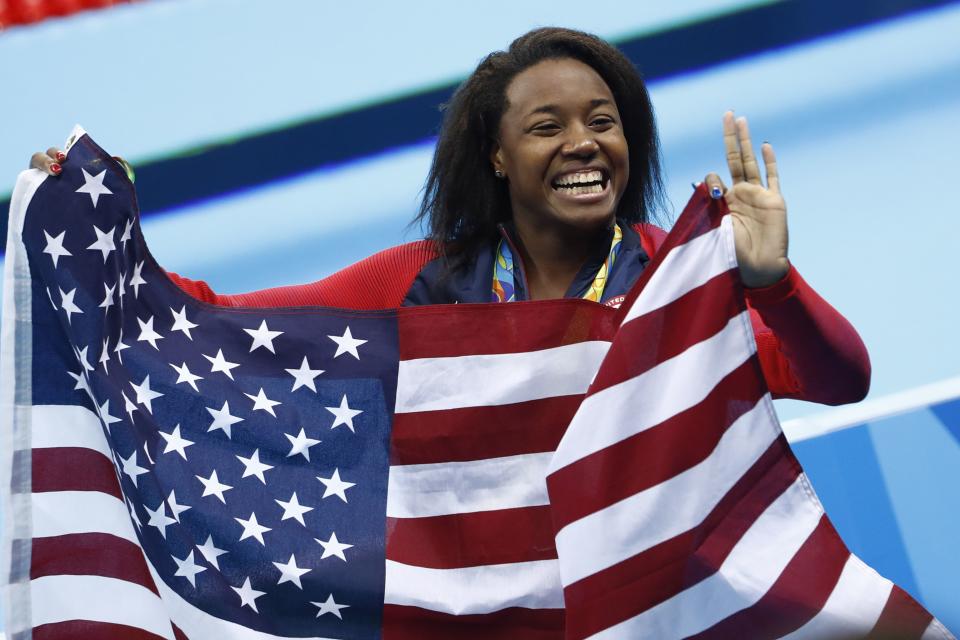
“The gold medal wasn’t just for me," Manuel said during the games. "It was for people who came before me and inspired me to stay in this sport, and for people who believe that they can’t do it."
Manuel left the 2016 Olympics with a whopping four medals and has been hailed as the future of swimming.
When the number of women of color in the Senate quadrupled.
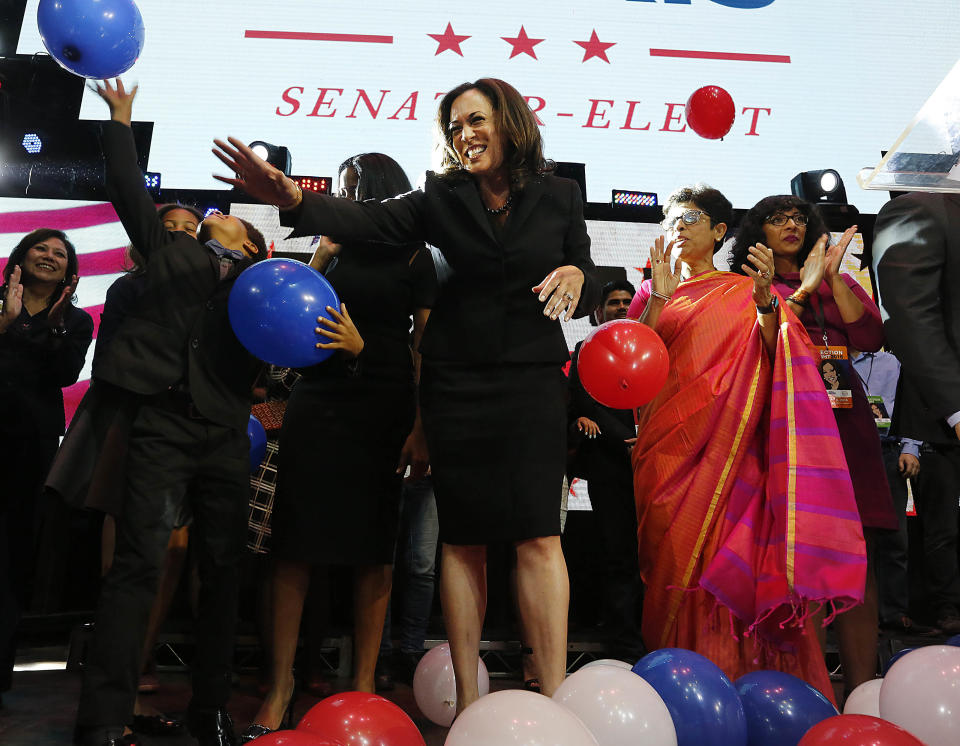
When a sexual assault survivor gave voice to millions.
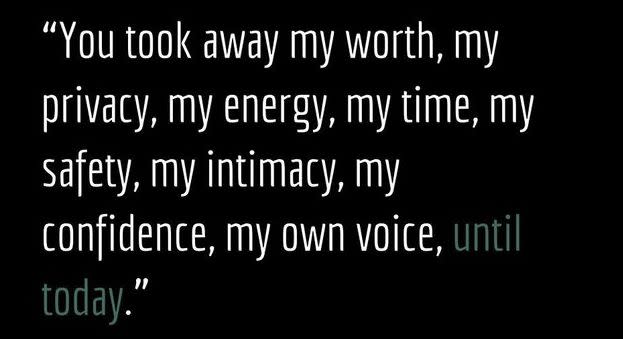
The 7,000 word letter -- arguably one of the most powerful statements on sexual assault ever -- offered an uncompromising look at the many ways in which sexual assault can upend a life, and how the legal system can fall terribly short.
As Emily Doe wrote to other survivors of sexual assault: "I am with you. On nights when you feel alone, I am with you. When people doubt you or dismiss you, I am with you. I fought everyday for you. So never stop fighting, I believe you."
When thousands donated to Planned Parenthood -- in Vice President-elect Mike Pence's name.
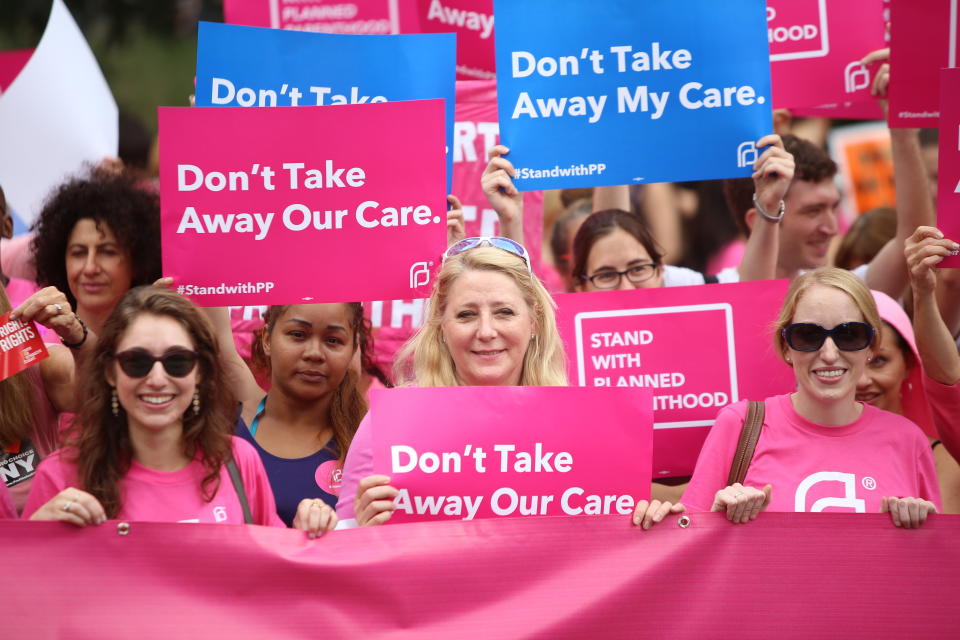
The donations were part of an even broader post-election surge in donations to organizations promoting social justice policies that run counter a Trump/Pence agenda. For example, the ACLU received millions of dollars in donations, and immediately after the election, its website traffic increased by 7,000 percent.
When Samantha Bee's show premiered — and saved us all.

When Ibtihaj Muhammad became the first U.S. Olympian to compete in a hijab.
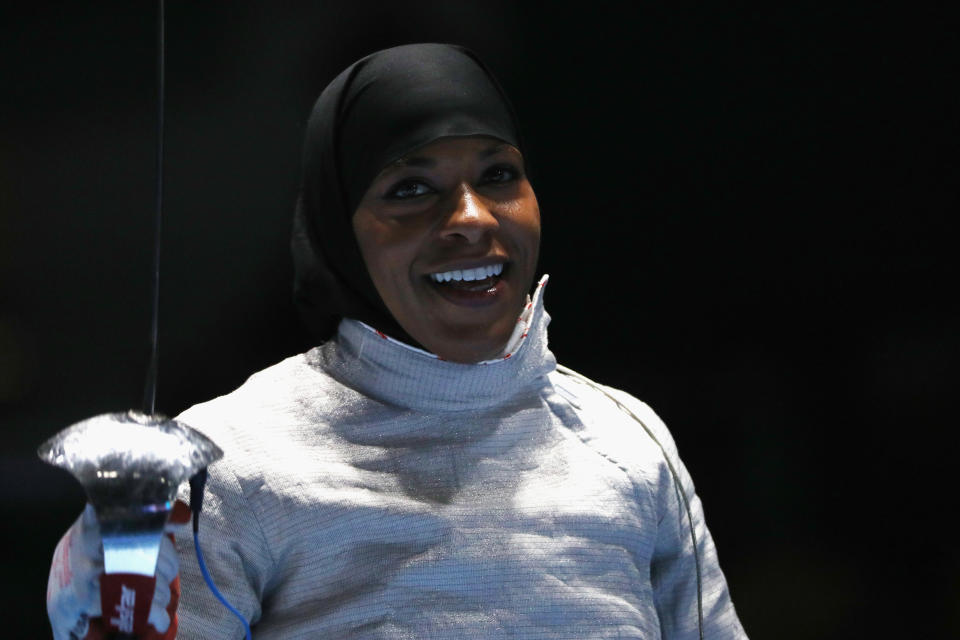
When swimmer Fu Yuanhui acknowledged that, yes, sometimes, women get their period.

When Beyoncé released "Lemonade," a powerful ode to black women.
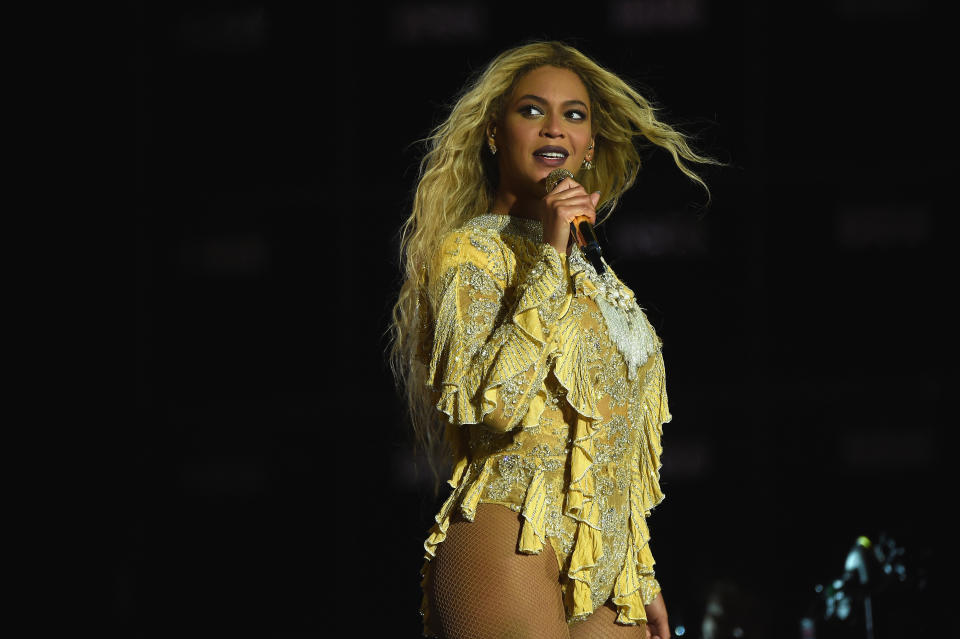
When Issa Rae's "Insecure" premiered.
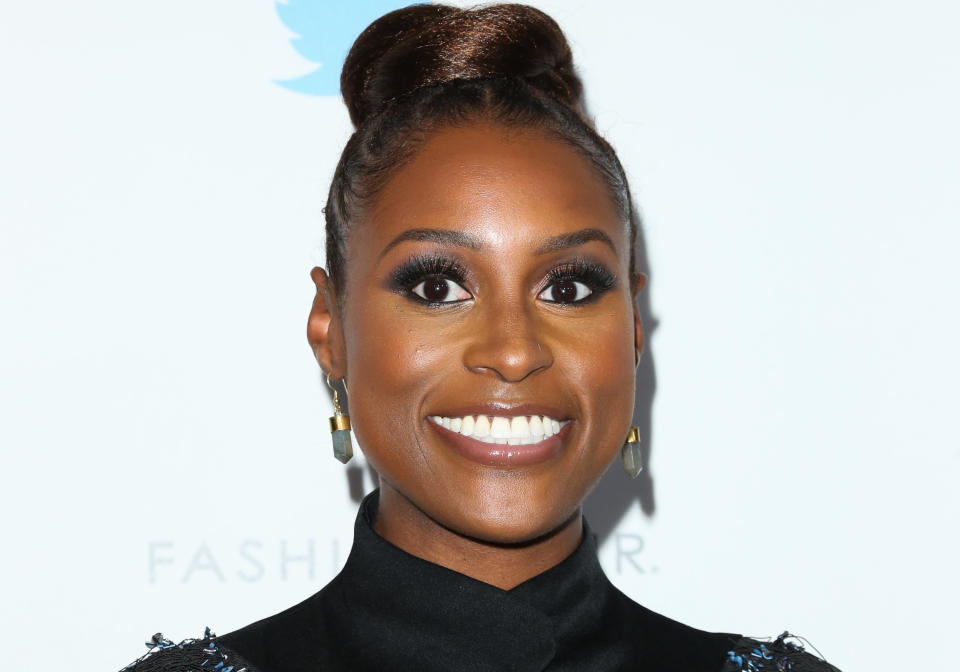
In many ways, it was remarkable simply for being unremarkable. "I say that black people don’t really get a chance to just be regular and boring and go through everyday things and this is very much a slice of life show," Rae said during a live conversation with The Huffington Post.
When Jennifer Aniston stood up against the relentless scrutiny women face in (and out of) Hollywood.
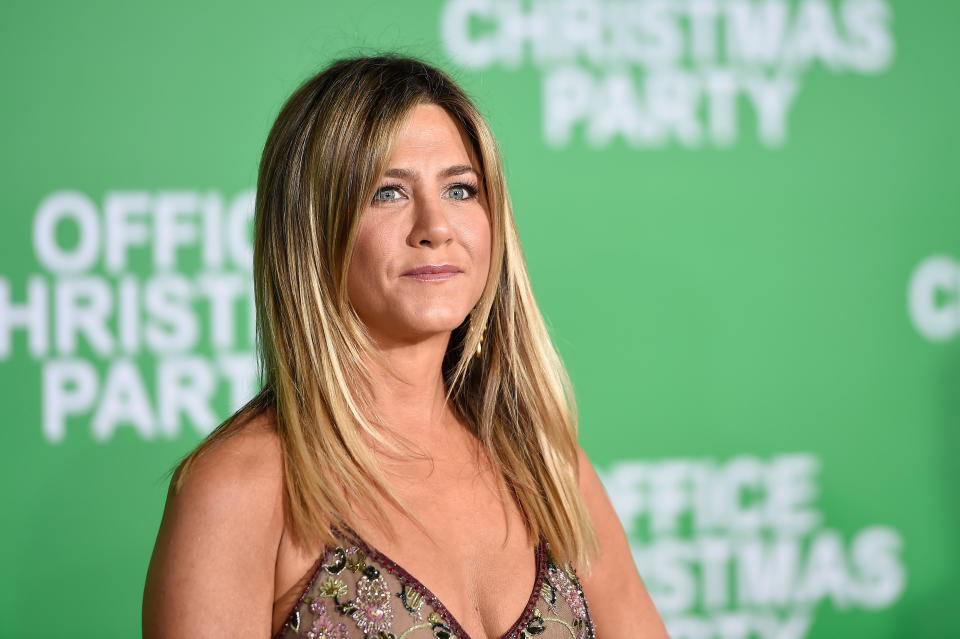
"We are complete with or without a mate, with or without a child," Aniston wrote. "We get to decide for ourselves what is beautiful when it comes to our bodies. That decision is ours and ours alone."
When emojis finally included hijabs, breastfeeding and women M.D.s.
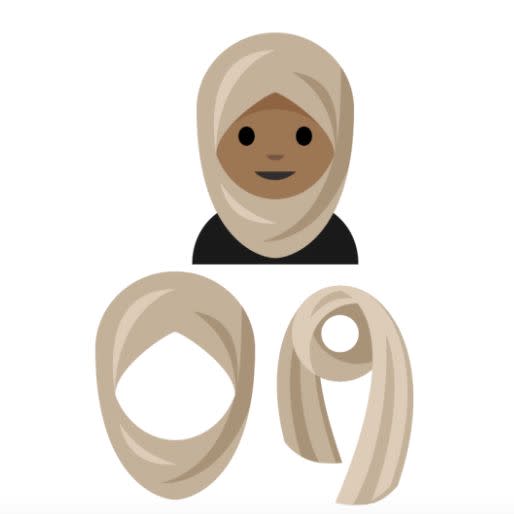
When Ilhan Omar became the Somali-American Muslim woman to hold public office.
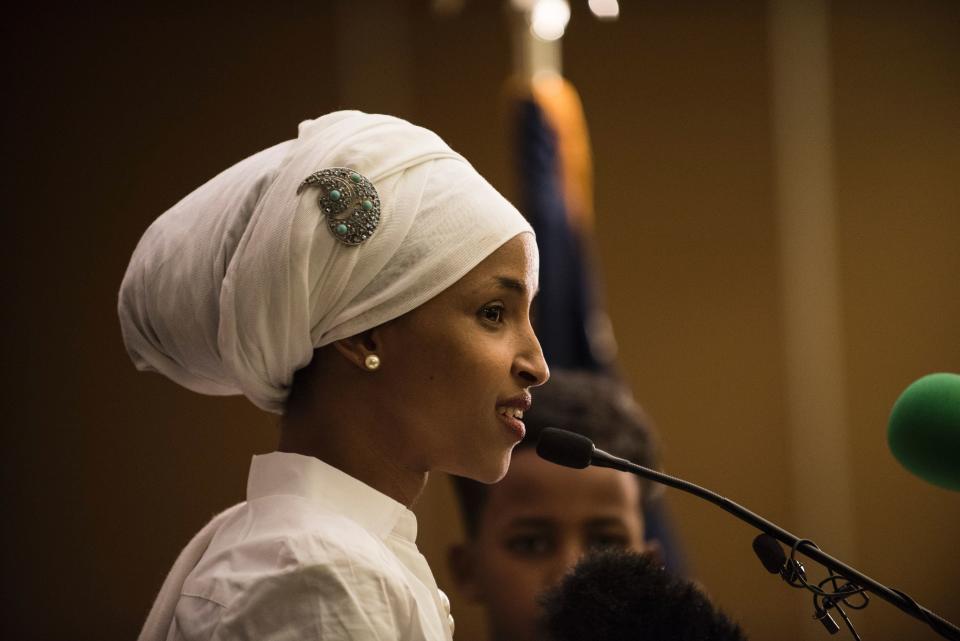
“Oftentimes, you are told to be everything but bold, but I think that was important for me in running as a young person and running as someone who is Muslim, a refugee, an immigrant,” told The Huffington Post in an interview last fall.
When women in Poland demanded control over their own bodies -- and won.
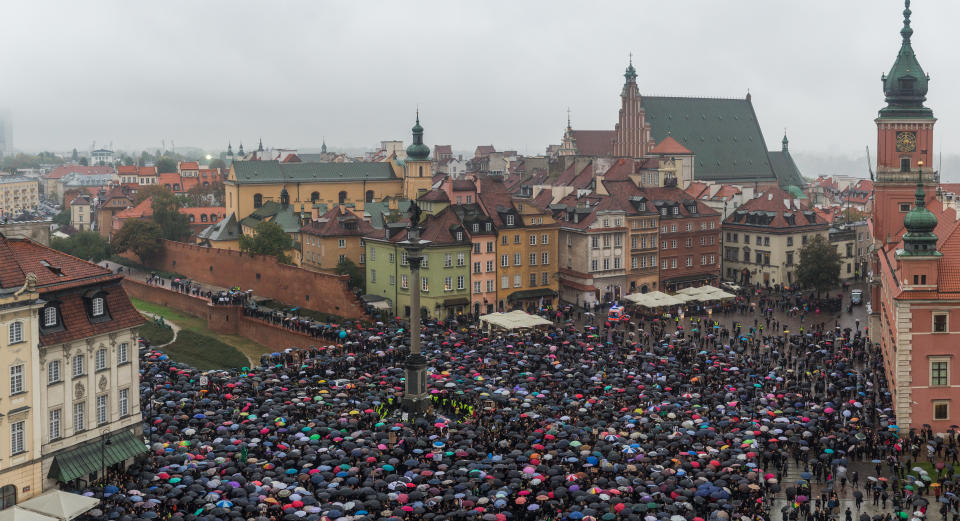
When President Obama reminded us that all men should be feminists.
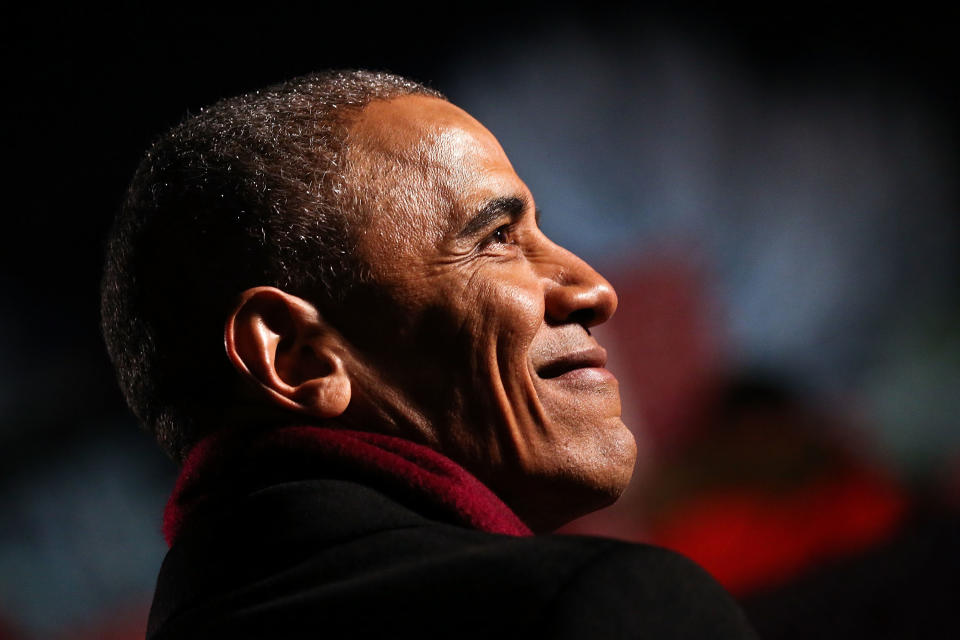
“It is absolutely men’s responsibility to fight sexism too," he wrote. "And as spouses and partners and boyfriends, we need to work hard and be deliberate about creating truly equal relationships.” To which we say, hell yes.
Love HuffPost? Become a founding member of HuffPost Plus today.
This article originally appeared on HuffPost.

